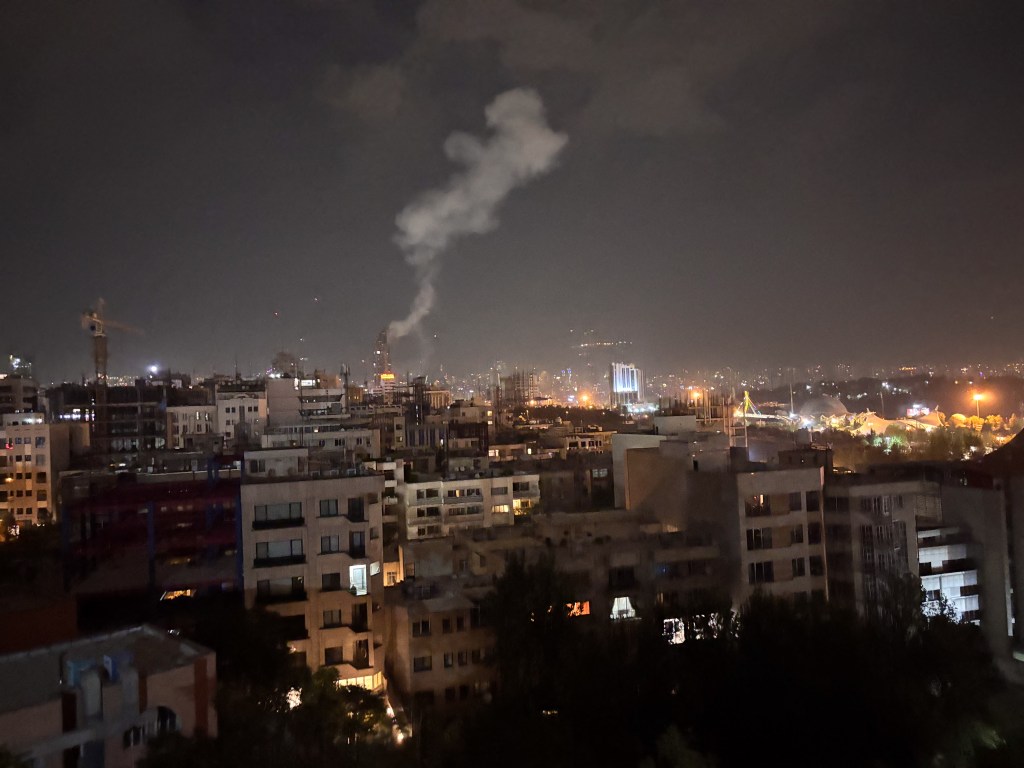
The Israeli onslaught, which included a series of strikes on Tehran, quickly swept through Iran’s chain of command. Among the top military officials killed were Islamic Revolutionary Guard Corps Commander Gen. Hossein Salami and Maj. Gen. Mohammad Bagheri, the chief of Iran’s military and the highest-ranking commander after Supreme Leader Ali Khamenei. But Israel also set its sights on the brains behind Iran’s nuclear program, carrying out targeted attacks on nuclear scientists, including Fereydoon Abbasi, the former head of the Atomic Energy Organization of Iran.
Several explosions were heard at Iran’s Natanz uranium enrichment site, which the International Atomic Energy Agency (IAEA)—the United Nations’ nuclear watchdog—later confirmed had been struck in the attack. According to the IAEA, the strikes did not hit Iran’s Fordow nuclear site, an enrichment facility built into the side of a mountain. Israel did hit Iranian missile factories and silos, setting off massive secondary blasts, as well as military bases across the country.
The attacks preempted what Israel assessed to be an imminent nuclear threat from Iran. Last month, a confidential report by the IAEA found that Tehran had significantly accelerated its production of uranium enriched to 60 percent since February, amassing a stockpile of more than 900 pounds—enough fissile material, if enriched further, for 10 nuclear weapons. But Israel now believes the country has the capabilities necessary to produce 15 bombs, and has been working toward assembling them. The situation had “reached the point of no return,” Israel Defense Forces IDF Chief of Staff Lt. Gen. Eyal Zamir said of the military’s decision.
Jerusalem reportedly presented its findings to the U.S., which knew about the attack in advance but denied participating in it. In a statement shortly after the strikes began, Secretary of State Marco Rubio said that Israel had taken “unilateral” action against Iran. “Our top priority is protecting American forces in the region,” he said. “Let me be clear: Iran should not target US interests or personnel.”
President Donald Trump reiterated that point in a conversation with Fox News’ Bret Baier late last night, saying that, although he was aware of the strikes beforehand, the U.S. was not involved militarily. “Iran cannot have a nuclear bomb, and we are hoping to get back to the negotiating table,” he said. “We will see. There are several people in leadership that will not be coming back.” Earlier in the day on Thursday, Trump had told reporters an Israeli strike on Iran “could very well happen,” but didn’t comment on whether anything was imminent.
“The question that I think everyone is asking in the region is whether the Iranians provoke the United States,” Jonathan Schanzer, executive director of the Foundation for Defense of Democracies, told TMD from Israel. “I think you have an administration that is not interested in engaging, but if the U.S. is provoked, I do think Trump would be hard-pressed to not respond.”
The U.S. had begun to withdraw non-essential embassy staff and military families from the region on Wednesday, in a move that many analysts assumed was a negotiation ploy. “I find this report to be the most plausible explanation of these unfolding events,” Jason Brodsky, the policy director at United Against Nuclear Iran, tweeted early Thursday. “Israel is preparing to strike Iran’s nuclear program should the 6th round of talks on Sunday fail to produce results. And the U.S. is using this threat to its advantage.”
Despite the Trump administration’s efforts to distance the United States from Israel’s attack, the Iranian Ministry of Foreign Affairs said in a lengthy statement on Friday morning that “the Zionist regime’s acts of aggression against Iran could not have been carried out without the coordination and approval of the United States,” and that as a result, “the US government, as the primary patron of this regime, will also bear responsibility for the dangerous repercussions of the Zionist regime’s reckless actions.” Iran launched more than 100 drones at Israel on Friday morning. But a spokesman for the Israel Defense Forces said the military was “working to intercept the threats.”
In the meantime, Israel is preparing its civilians for a long and difficult fight ahead. Netanyahu said the operation would continue “for as many days as it takes to remove this threat,” as Israeli Defense Minister Israel Katz declared a state of emergency.
But Israeli officials are betting that the gamble will pay off. “When the Israelis have decided to pull the trigger, they’ve done so in ways that have had a debilitating effect on their enemies and capabilities,” Schanzer said. “This is an attempt to ensure the safety and security of Israel for decades to come, and if they’re successful, this will go down as a remarkable day in history.”

















